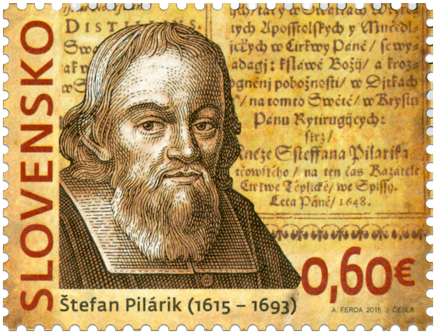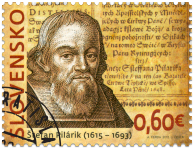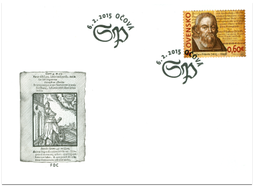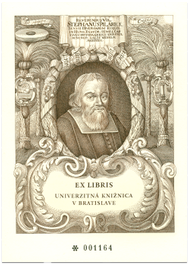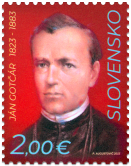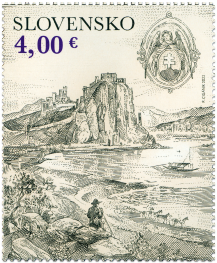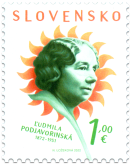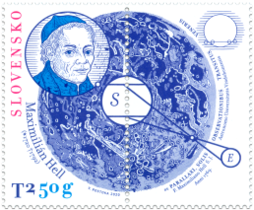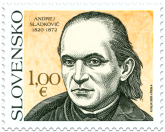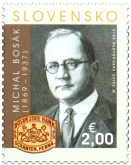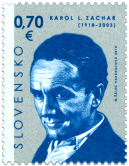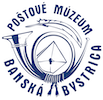582 Date of issue
06.02.2015 Face value
0.60 € Sell price
0.60 €
Štefan Pilárik was an Evangelic priest, remarkable poet and prose-writer of the Baroque period. He lived in turbulent times of confessional disputes, Ottoman attacks and anti-Habsburg moods. Contemporary social events and the dramatic fate of authors were also reflected in his works. Štefan Pilárik was born in Očová in 1615 to the family of an Evangelic priest. He was ordained priest in Zvolen in 1639. He zealously served in Dolná Strehová, Spišská Teplica, Liptovský Ondrej, Trenčín, Beckov, and from 1663 Senica. In 1673, he exiled via Wroclaw to Germany and served as a preacher in Neusalz until his death in 1693. He started dealing with literature as a translator of German Protestant literature. The first of his own works were prayer books and hymnbooks for the practical needs of priests and believers: Favus Distlillans (“Flowing Honey”, Levoča 1648) and Davidova harfa (“David’s Harp”, Trenčín 1652).
The most significant work from the literary perspective is his epic and reflective poem Sors Pilarikiana – Osud Pilárika Štefana (“Sors Pilarikiana – The Fate of Pilárik Štefan”), which was published in slovakised Czech in Žilina in 1666. The author reflected on his experience from 1663, when he was subjected to two months of Ottoman imprisonment. He captured his testimony in a realistic style, providing precise facts, data and historical events. Due to its anti-Ottoman and memoire character, this work became the only preserved work of its kind in Slovak literature. The text includes two poems Píseň o zemi uherské (“A Song of the Hungarian Land”) and Rozjímání (“Contemplation”), where he develops moralising ideas of a reformation of the humankind. Other Pilárik works were published in German. He also presented his experiences from the Ottoman imprisonment in his autobiographic prose Turcico-Tartarica crudelitas (“Turkish-Tatar Cruelty”, Bautzen 1684). In this poetic and mystical prose, he depicted reality under the influence of his confessional conviction.
The author’s thinking and his life on the basis of contemporary Church history was manifested in another autobiography Currus Jehovae mirabilis (“Miraculous God´s Chariot”, Wittenberg 1678). In a hundred-page work, he confronted the reality of life with religious and mystical thinking, offering readers his preaching, religious and educational ideas. The only authentic portrait of Štefan Pilárik has been preserved in this book. The postage stamp and FDC include motifs from the author's manuscript “Favus distillans”, its origins being the collection of the University Library in Bratislava.
Klára Mészárosová
© 2024 POFIS - Postal philatelic service. All rights reserved

